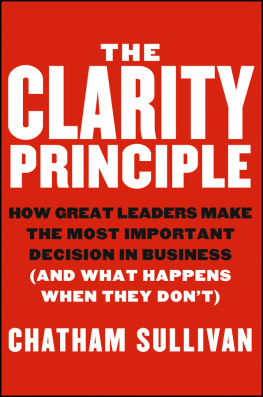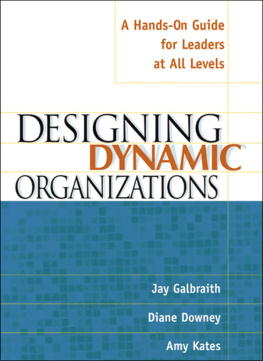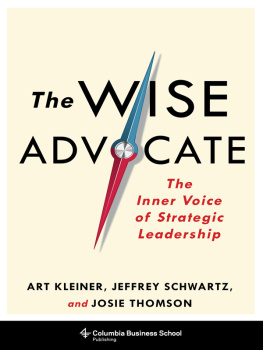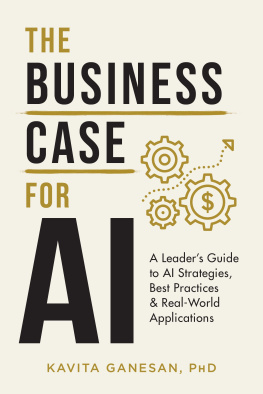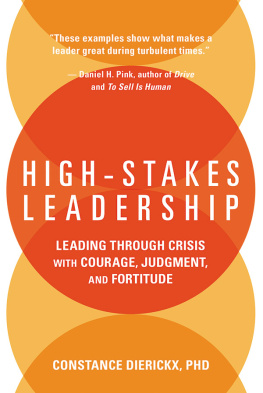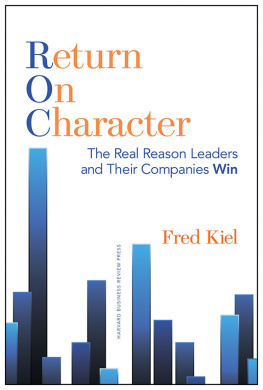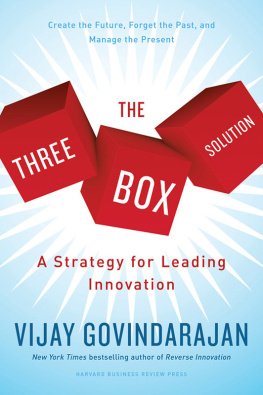
Table of Contents
Copyright 2013 by John Wiley & Sons, Inc. All rights reserved.
Published by Jossey-Bass
A Wiley Brand
One Montgomery Street, Suite 1200, San Francisco, CA 94104-4594www.josseybass.com
No part of this publication may be reproduced, stored in a retrieval system, or transmitted in any form or by any means, electronic, mechanical, photocopying, recording, scanning, or otherwise, except as permitted under Section 107 or 108 of the 1976 United States Copyright Act, without either the prior written permission of the publisher, or authorization through payment of the appropriate per-copy fee to the Copyright Clearance Center, Inc., 222 Rosewood Drive, Danvers, MA 01923, 978-750-8400, fax 978-646-8600, or on the Web at www.copyright.com. Requests to the publisher for permission should be addressed to the Permissions Department, John Wiley & Sons, Inc., 111 River Street, Hoboken, NJ 07030, 201-748-6011, fax 201-748-6008, or online at www.wiley.com/go/permissions.
Limit of Liability/Disclaimer of Warranty: While the publisher and author have used their best efforts in preparing this book, they make no representations or warranties with respect to the accuracy or completeness of the contents of this book and specifically disclaim any implied warranties of merchantability or fitness for a particular purpose. No warranty may be created or extended by sales representatives or written sales materials. The advice and strategies contained herein may not be suitable for your situation. You should consult with a professional where appropriate. Neither the publisher nor author shall be liable for any loss of profit or any other commercial damages, including but not limited to special, incidental, consequential, or other damages. Readers should be aware that Internet Web sites offered as citations and/or sources for further information may have changed or disappeared between the time this was written and when it is read.
Jossey-Bass books and products are available through most bookstores. To contact Jossey-Bass directly call our Customer Care Department within the U.S. at 800-956-7739, outside the U.S. at 317-572-3986, or fax 317-572-4002.
Wiley publishes in a variety of print and electronic formats and by print-on-demand. Some material included with standard print versions of this book may not be included in e-books or in print-on-demand. If this book refers to media such as a CD or DVD that is not included in the version you purchased, you may download this material at http://booksupport.wiley.com. For more information about Wiley products, visit www.wiley.com.
Library of Congress Cataloging-in-Publication Data
Sullivan, Chatham, 1976
The clarity principle : how great leaders make the most important decision in business (and what happens when they dont) / Chatham Sullivan.First edition.
pages cm
Includes bibliographical references and index.
ISBN 978-1-118-43466-6 (cloth); ISBN 978-1-118-62727-3 (ebk); ISBN 978-1-118-63068-6 (ebk); ISBN 978-1-118-63071-6 (ebk)
1. Leadership. 2. Decision making. I. Title.
HD57.7.S85 2013
658.4'092dc23
2012049785
To my family
Elizabeth, Sophia, Abraham, and Lyra
Introduction
Three hundred senior managers of a Fortune 500 consumer goods company sat patiently in a ballroom of a posh San Francisco hotel. Like me, they were there to hear important news. Leadership changes, restructuring, and questions about the companys strategy had spread confusion throughout the organization. The assembled group hoped for some clarity.
As a consultant, my job was to help the group discuss the implications of the new strategy later that day. The companys senior executives had worked right up to the eleventh hour, and I knew only the bare outlines of what they were going to reveal. I was curious myself to see what would happen.
It started well enough. The morning had been finely choreographed. Professional videographers patrolled the perimeter of the room while a succession of senior executives delivered warm-up speeches for the new strategy. Introduced by tasteful selections of contemporary rock hits, the executives passed by the companys supersized logo which adorned a backlit wall above center stage. Like presenters at the Oscars, the executives traded playful banter at the podium. Some offered heartfelt pep talks about the future. Others shared stories. It was scripted, but good-humored. They seemed to know the right words to say. One executive declared, We have to make big choices.
Good, I thought from my perch in the back of the room. This sounds pretty serious. They might get something started today.
Two hours later my optimism had faded. The trailer had been better than the movie. Beyond the 2 2 that summarized the strategy, the bullet points, and the management speak, the new strategy didnt say much. If anything, it confused rather than clarified. It was vague, equivocal, and short on substance for people in the room. It certainly didnt satisfy the bigger questions that I knew were on everybodys minds.
Sitting at the back of the ballroom, I looked around to observe the audience reaction. I craned my neck to see the expressions of managers in the row of tables directly in front of me. It wasnt good. I saw hints of exasperation and cynicism. People stirred and shifted in their seats, or shot quick glances at one another. The bolder ones expressed their feelings in harsh whispers (Whats really different?); the majority held their tongues, nodded, or else sighed in resignation. Then, as the wagon train of speakers rolled on, I imagined that the assembled managers were already beginning to work out in their heads what they would say to their people back homepeople who were waiting for answers.
As for me, I sank down in my chair and stared into the vast space above the ballroom. My job didnt hang in the balance. I was just a consultant. Still, I felt a mixture of disappointment and frustration. Not because my task for the afternoon had become more difficult, but because I had seen this movie too many times before. It was one more example of a company that couldnt get clear about what it was.
Identity Crisis
Every company, including yours, exists for a reason. Every business has a purpose. Even if your organizations objective is to make money, the way it endures is by solving a particular kind of problem in the world. Whether you are a pharmaceutical carving out a unique way to treat patients, a nonprofit serving a worthy constituency, or a global retailer satisfying a particular consumer desire, your market, your customers, and the people in your organization all need to know clearly what the business is about. Just like individuals, companies need to know who they are, what theyre up to, and why it matters.
As the following chapters will show, businesses that clearly understand and express their purpose outperform those that dont. Clarity of purpose, Ill argue, is a competitive imperative. Its also an existential one. Purpose, and the identity it conveys, is the lifeblood of the organization. Its what gives a business its driving motive and cohering storyline.
But purpose doesnt happen by default. Its chosen. The viability of the strategy wasnt the real problem in San Francisco that day. It wasnt a matter of formulating the right market position or finding the right words or communicating the right messages. The problem was that when it came time to make the big choice, the company and its leaders blinked. They were unwilling to take a stand on the companys core purpose and make a decision.

